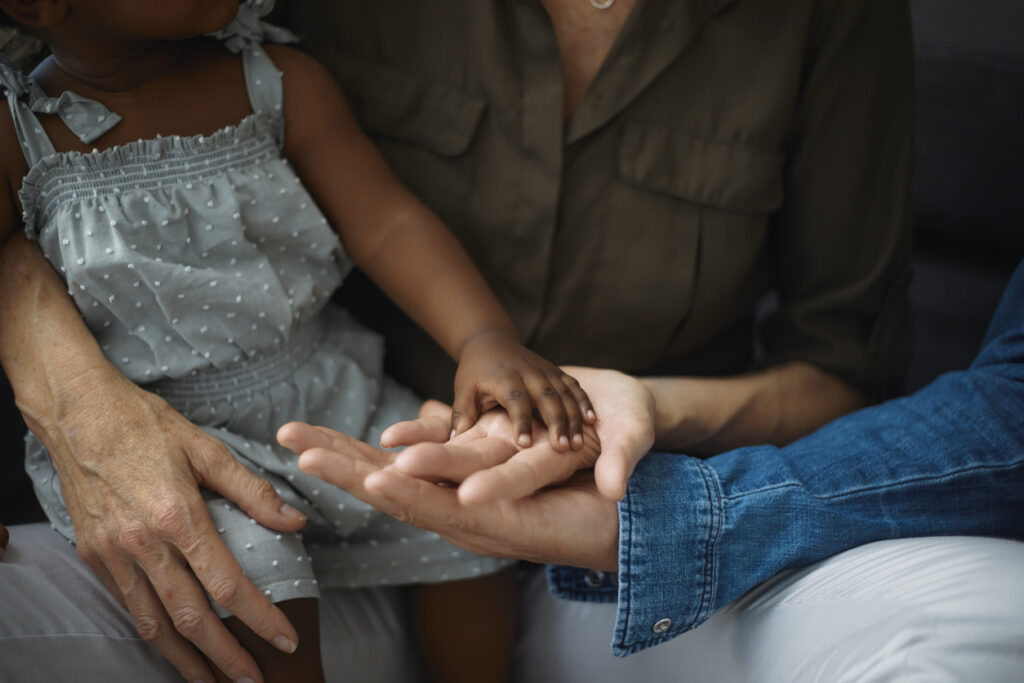Connecting with families has always been a professional strength. My peaceful demeanor and empathetic nature lend themselves well to building deep, trusting relationships—even before I became a parent. Because of this, I found myself frustrated when well-meaning colleagues spoke about the various parenting challenges they and our clients faced only to quickly close out the conversation by telling me “you’ll understand when you’re a parent.” It felt dismissive, as if I were an annoying junior colleague trying hard to keep up with the more seasoned clinicians but always just a beat behind.
For most of the families I worked with, the fact that I hadn’t yet become a parent didn’t seem to bother them, though in one case, I was “fired” by a parent who, after asking if I had my own children, requested her family be transferred to a different service coordinator. Despite this, I held firm to my belief that I didn’t need to have my own children to provide support to young children and their families. I knew how young children develop. I was well-versed in generalist social work practice. I could empathize, offer grace and compassion, and sit with someone in their hardest moments.
Or so I thought.
In the years since, I’ve become a parent myself and finally understand the lesson my former colleagues tried to impart—there are some things that cannot be fully understood without having your own lived experiences.
This doesn’t mean clinicians need to be parents to provide quality care. However, few life experiences truly mirror the intensity and complexity of parenthood enough to offer a sense of appreciation for the challenges, and challenging emotions, that arise when you’re raising a child. One of my former supervisors, when wondering about this very thing, said “you can’t listen to a recording of a crying newborn all night to get an authentic sense of what that’s like. It’s something you need to experience first hand.”
While my own parenting experiences have led to more meaningful and authentic connections with families, time and reflection have shaped how I use these experiences in a clinically appropriate way. When our personal experiences match too closely with those we support professionally, it’s easy, and understandable, for boundaries to become blurred. We might rely too much on the details of our personal lives in an effort to “prove” that we truly understand something rather than offering true empathy—which is understanding someone’s lived experience from their perspective, not our own.
The nuanced and challenging feelings that are part of the parenting experience often feel unspeakable, leaving parents feeling isolated and ashamed by their thoughts and feelings. I know this because of my own parenthood experience, which supports me in creating a felt sense of safety in the relationship with clients in order to truly hold space for the things parents need to say, and sometimes the things they can’t say. Being able to look them in the eye and say “you are not alone in how you feel,” normalizes that good parents often have scary thoughts and intolerable feelings, creating a sense that some things are universal to the parenting experience. It’s not them that’s the problem, parenting is just that hard.
Much of the parenting experience can be broken down into universal themes but how those themes present are unique to each individual—shared experiences don’t make us experts on another’s life. If we choose to use our experiences through appropriate self-disclosure as a clinical tool, it’s necessary to ask ourselves why we want to share that particular experience and who it serves, us or our client. Good clinical supervision helps us explore these questions and ensures we use personal experiences ethically and effectively.
Between documentation, rising caseloads and increasing additional responsibilities, it can feel like there isn’t enough time in our work day to fully reflect on how we’re using lived experiences to inform our work with clients. Tools like Casebook help reduce that burden by streamlining documentation and day-to-day workflows—freeing up time to pause, reflect, and engage in meaningful supervision. Making space for this kind of reflection helps ensure we’re using lived experience ethically, empathetically, and in service of our clients.
Bringing Lived Experience Into Practice, Thoughtfully
Explore how Casebook can support reflective, ethical social work.
From streamlining documentation to enabling better collaboration and supervision, Casebook helps social workers spend less time on admin—and more time connecting meaningfully with clients.


